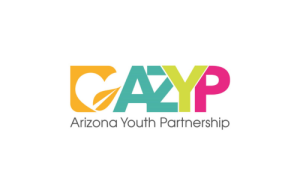
Mind Matters with OJJDP Title II Funding
Organization: Arizona Youth Partnership – Youth Service Division (AZYP)
Program Name: Solutions of Success: Mind Matters
Funding: Arizona Title II Formula Grant (Office of Juvenile Justice and Delinquency Prevention)
What Problem is being solved?
- Delinquency prevention, intervention, and accountability services.
- Appropriate and effective response to the needs of at-risk and delinquent youth and their families while promoting public safety.
- Facilitate and support positive outcomes for youth, families, and communities.
- Help youth manage peer pressure and emotions.
- Help youth develop impulse control and behavioral self-management
Curricula Used: Mind Matters: Overcoming Adversity and Building Resilience
Curricula Benefits:
- Teaches practical coping skills
- Can be utilized with any age group at any time
- Good for youth waiting for mental health services
- Participants learn skills that help with reactiveness and build communication
- Very good for rural youth
Target Audience: Juveniles at risk for delinquency or in the correctional system.
Audience Demographics: 50% male – 50% female. Majority Caucasian, some Indigenous and Hispanic youth, and smaller percentages of other racial demographics
Class Size: 10-12 is ideal (not over 20)
Program Setting:
- Runaway and homeless youth shelters (male and female)
- Tribal schools
- Diversion classes during school time
- PRIDE center – a non-profit organization dedicated to serving the LGBTQ+ community in Bullhead City, Arizona and surrounding areas that provides a safe space for youth and adults to get resources, community information, attend various groups and participate in activities and programs such as Mind Matters.
- AIM Program (Weekly classes for youth on probation): a evening reporting center for probation youth to have a safe place to check in with trusted adults, participate in various activities and programs such as Mind Matters, learn life skills, and get tutoring.
Location of Instruction: Rural Counties in Arizona
Length of Instruction (# of Sessions and hours per session): All 12 lessons during school and AIM programs. Fewer than 12 lessons to youth in shelters.
Instructors: AZYP employees who are:
- Trained to facilitate Mind Matters
- Trained in Adverse Childhood Experiences, Kids at Hope and Trauma Informed Care, and Mental Health First Aid
How Was Cultural Adaptation Incorporated? No specific cultural adaptations were made. A wide breadth of self-soothing techniques are taught throughout the curriculum, and participants can utilize whichever ones most align with their cultural beliefs and attitudes during reflection periods. Gender sensitive language is used and Culturally and Linguistically Appropriate Services (CLAS) standards are followed.
Student Journals: All students get journals. Instructors retain them and pass them out at every class. At the end of instruction, the students get to keep their journal.
We encourage participation by providing art supplies such as colored pencils or crayons for them to journal, color or doodle.
Incentives to Students: No student incentives
Observable Outcomes: Staff have reported that youth are noticing the changes in each other such as:
- being nicer, happier, talking more,
- engaging more in conversations and activities,
- being supportive of each other and
Challenges: Without strong school partnerships, implementing programming into school schedules can pose scheduling challenges.
Retention of participants at runaway and homeless youth shelters because of typical turnover. Complete dosage can be difficult to manage.
Tips: Ask youth to lead the class in the self-soothing exercises.
Provide pens, pencils, and colored pencils for the kids to doodle. (Not markers because kids will draw on themselves.)
Describing the program as “coping and resilience skills,” may better create alignment with schools and other partners.

